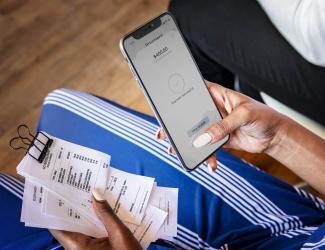
Financial Survival Guide
By Mark Wendell
No matter your demographic, there are certain financial principals in a capitalistic economic system that are truisms: Educate yourself, work hard, persevere, save and invest dollars now for the future, and later live more happily ever after. Having extra funds in the future will buy you more freedom when you will want it most. Work. Invest. Dream.
By not saving enough dollars in our working years only sets you up for a constrained retirement. Whether your excuse originates with an attitude of fatalism, nihilism or pessimism or from a simple lack of priority-ism or knowledge-ism regarding savings/investment for the future, there isn’t a good reason to avoid facing the reality of understanding that money is a very important aspect to your later years. Are your peers and colleagues saving? Are they finding a purpose to slide a few dollars into a side pocket monthly, such as a 401k, an IRA? Are you living with an attitude of live today – die tomorrow, so what’s the point? Are you living with an attitude of leverage and risk it all today for a maybe huge payday tomorrow? Are you too busy working to take time to plan? The future is coming, planned or not, are you prepared for it?
Setting funds aside today for later rather than spending it in the moment is fundamentally difficult for most people. Think about how you might modify your behavior to allow for saving funds in the preverbal cookie jar without changing your lifestyle. Consider the fact that life does throw us occasional curveballs, so saving extra funds sooner and consistently needs to be a priority to avoid disaster when life happens.
To overcome the natural resistance to saving/investing for tomorrow, we must shift our mindset to focus on positive visions of the future that don’t include leverage, loans or working just to make ends meet or to recover from unforeseen life events. We must envision a retirement that includes travel, remodeling, grandkids, hobbies, no mortgages or debt, and a larger bank account with which to exercise the freedom to make lifestyle choices. We need to think less about money itself and what it can buy today and start thinking more about what we want our life to look like down the road. This simple concept is called long term delayed gratification.
- Envision and dream about the second half of your life, what will it look like.
- Save/invest with self-discipline; even small amounts initially add up over the long term.
- Deliberately modify your behavior patterns to allow for more savings annually.
- Eliminate debt, loans, and mortgages faster than required, one month at a time.
- Work and persevere, be creative in recognizing opportunities to convert income to equity.
- Adjust your definition of money; it is a tool to be used to build your vision of the future.
- Use debt properly by investing in assets that appreciate or in people to leverage your time.
- Become a student of your chosen profession; more reward will follow.
- Consciously adopt a daily routine of positive thinking and gratitude.
- Talk to financial specialists for their specific expertise to leverage your time elsewhere.
The best analogy for finding a savings/investment purpose is to look at another aspect of life: diet and exercise activities. We usually can see clearly how diet and exercise activities relate directly to our health - short term and long term - especially when we practice a disciple and adhere to a daily schedule. Why should it be any different with our daily money routine. After many years of adhering to a regimented savings/investment plan, we will have a very healthy and secure ‘second half’ of our life. This period of life will arrive, whether we want to face the reality or not. And there is one thing worse than not having the toys and joys today, and that is not having a healthy financial future when it arrives.

